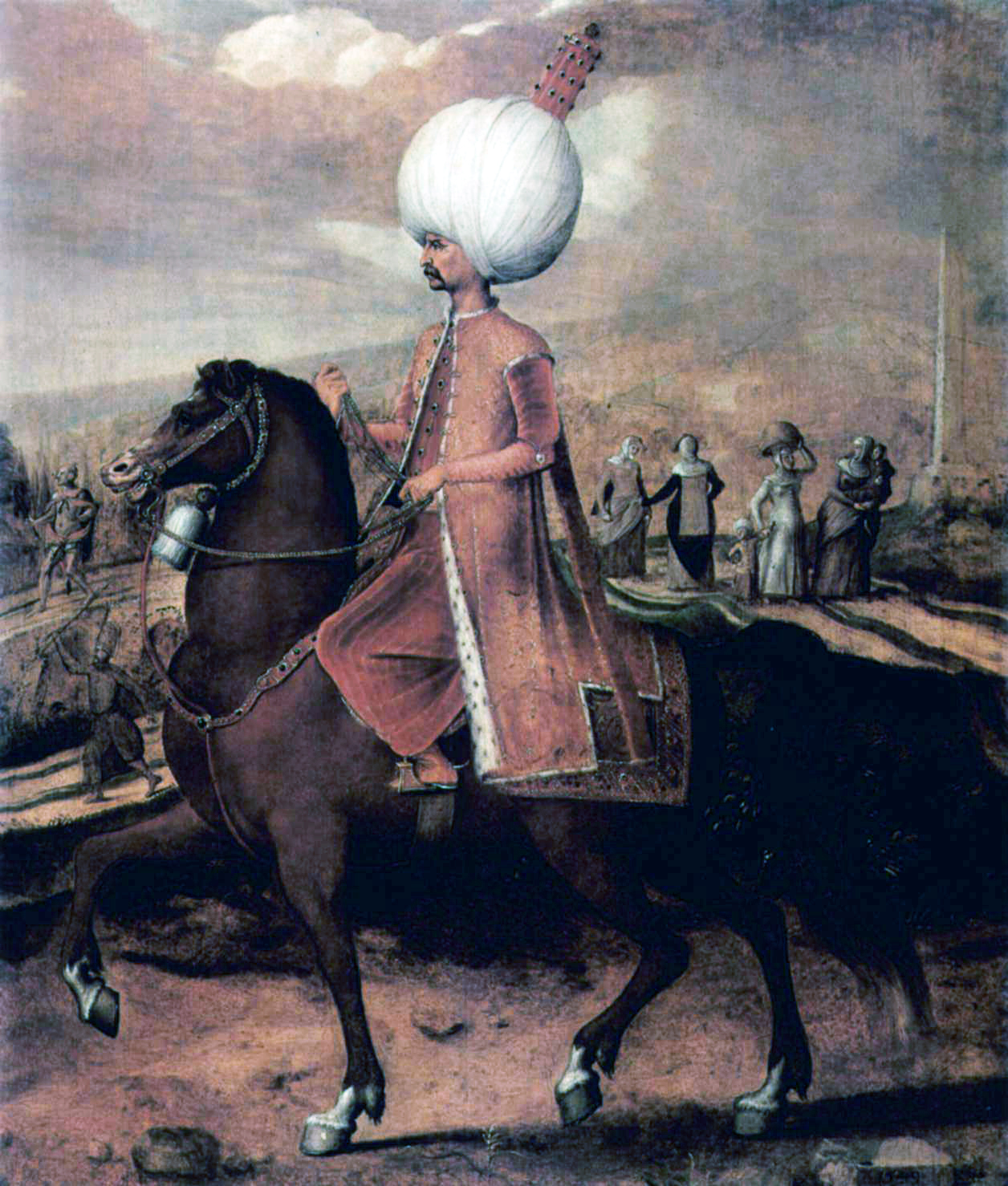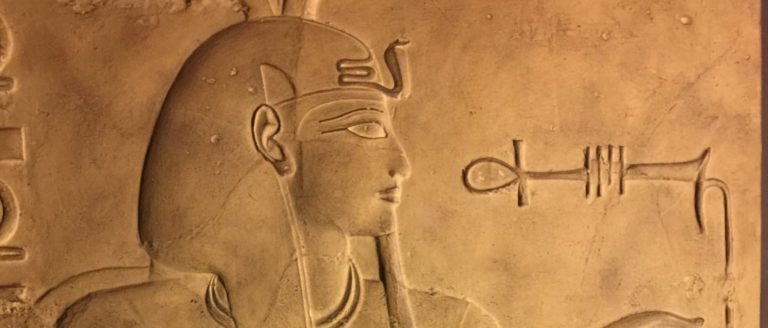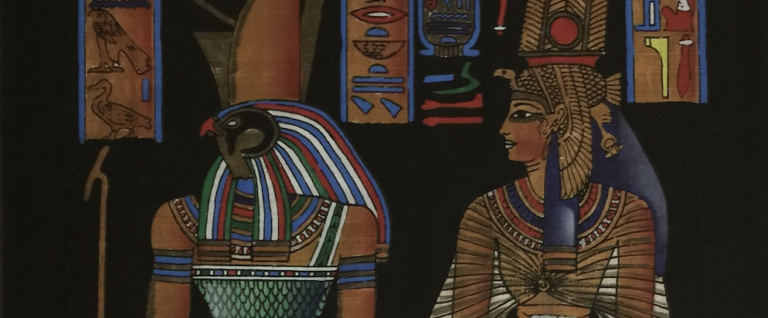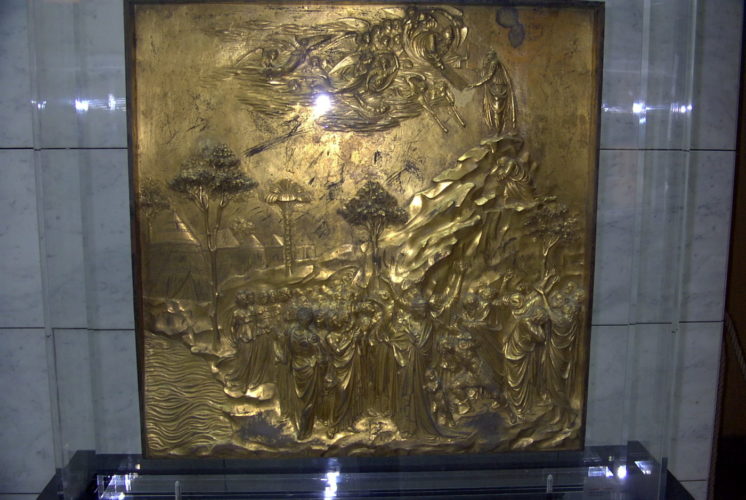There are a number of other themes that pop up in Egypt’s long cultural journey. Here is a short sample:
Gods and Goddesses: Counting Egyptian deities is practically a competition. Internet sources vary in their estimates from 60 to over a hundred, up to 2,000. It’s hard to keep them straight or to know which are more significant. Some of the big guns start with the creators, Amun (Creation), Ra (the Sun), Ma’at (Justice), and Thoth (Wisdom). Life and Death are ruled by Horus (Life), Osiris (Death), and Isis (Magic). But, that’s just a start. You can’t tell the players without a program. We suggest either Egyptian Mythology: A Guide to the Gods, Goddesses, and Traditions of Ancient Egypt, or The Complete Gods and Goddesses of Ancient Egypt
.
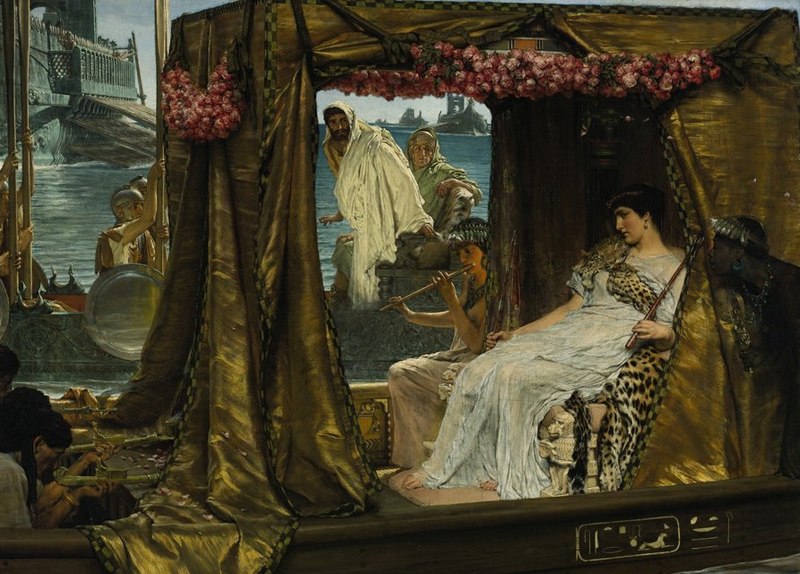
Cleopatra: The history of Ancient Egypt comes to a close with the death of its last pharaoh, the sultry Cleopatra VII. In service to the kingdom she hoped to preserve, she married Julius Caesar, Marc Antony, and her brother! None of them came to a good end, either. Julius, of course, was assassinated in the Roman Senate. Her brother, Ptolemy XIV, was mysteriously poisoned, allowing Cleopatra to name her son by Julius Caesar as Pharaoh. Hmmm…
Finally, her last lover, Marc Antony, crossed egos and swords with Caesar’s nephew, Octavian, while swilling around the Mediterranean with Cleo. After a disastrous naval encounter, Antony and Cleopatra return to Alexandria where he falls on his sword and she succumbs to the sexiest snake bite in world history. Shakespeare puts his iambic pentameter spin on the tale in Antony and Cleopatra (Folger Shakespeare Library). Zahi Hawass provides a somewhat more authoritative version of the story in Cleopatra: The Search for the Last Queen of Egypt
.
Islamic Egypt: The shifting sands of the Islamic domination of Egypt begin to sift through the hourglass right after the death of the Prophet Muhammad. By the time of his passing in 632 CE, Muhammad had managed, by force and persuasion, to round up rival leaders, merchants and the Bedouin of Arabia into one large Muslim community, the Ummah. As told in Karen Armstrong’s Islam: A Short History (Modern Library Chronicles), life in the desert was hard and many Arabic tribes lived by raiding neighbors or caravans. This was called ghazu. But the laws of Islam forbade waging ghazu against other Ummah members. So, Muhammad’s successors decided the only solution was to expand the community, by invading nearby non-Muslims. They defeated Persia in 637, Jerusalem in 638, and Egypt in 641, basically expelling the Persians who had snuck in after the decline of the Eastern Roman Empire of Constantinople.
, and the profile of its most charismatic leader, Suleiman the Magnificent
.
For a quick introduction to Islam, we strongly recommend No god but God (Updated Edition): The Origins, Evolution, and Future of Islam, and What Went Wrong?: The Clash Between Islam and Modernity in the Middle East
. These two books, along with Armstrong’s Islam: A Short History (Modern Library Chronicles)
, will help you understand the historic development of the religion, its internal conflicts between Sunni and Shiite sects, and its relation to the Judeo-Christian traditions.
The Suez Canal: Long a dream of Egyptian rulers, it took some risky finance and French know-how to dig the most important canal of world commerce in 1869. The British had opposed the project because it disrupted its monopoly of maritime trade routes to India. However, they soon became the biggest customer. Much of the construction of the Canal took place during the American Civil War. The war disrupted the world wide supply of cotton, causing a shortage and an artificially high price for the fabric. Egypt was, and still is, one of the other major world suppliers of cotton. The Egyptian Pasha took advantage of the high cotton prices to borrow way too much money for development projects. When the US war ended, cotton prices crashed and Egypt was over-extended. The economy collapsed and there was “civil unrest”.
The opportunistic British swept in with gunboats blazing to a) quell the disturbances, and b) seize control of the strategic Canal. They effectively held onto that control until after World War II. Another fine example of western capitalistic diplomacy. See Parting the Desert: The Creation of the Suez Canal, for a blow-by-blow recounting of events.
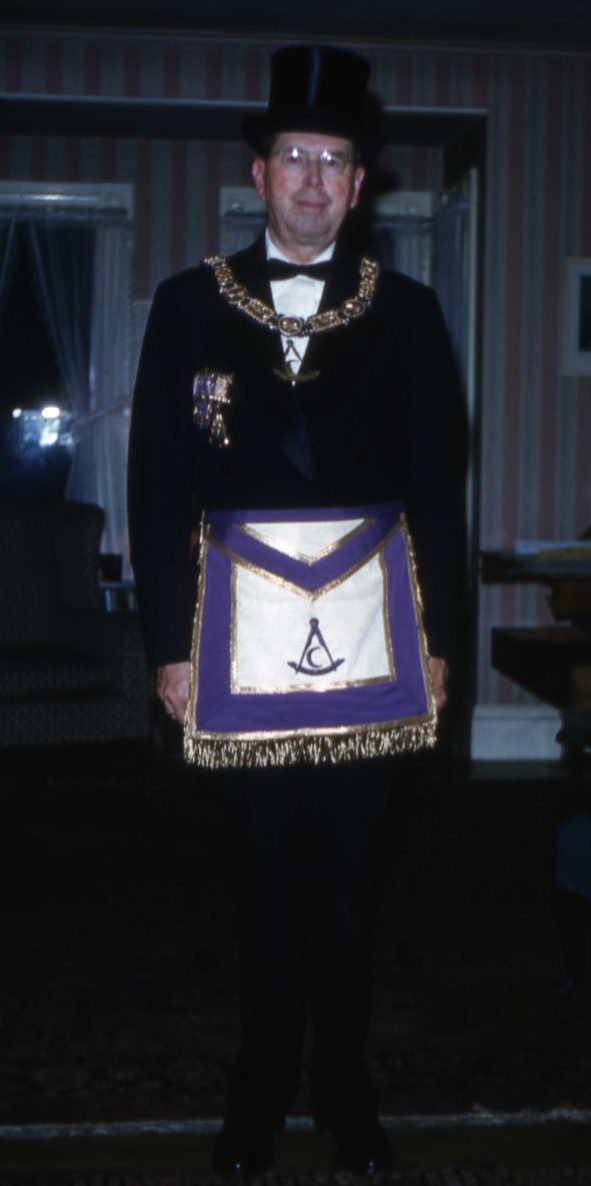
The Masonic Connection: Thanks to The Da Vinci Code, there has been a lot of recent interest in the history, rituals and secrets of the Masonic Order of Freemasonry. Some scholars trace the origins of Freemason beliefs back to the Old Kingdom in Egypt. It’s a fascinating tale of envy, murder, deception, symbolism, betrayal, and abiding secrecy. And it may all be true. Pick up The Hiram Key: Pharaohs, Freemasonry, and the Discovery of the Secret Scrolls of Jesus
and challenge your notions of history, religion, and politics.
The Arab-Israeli Conflict: Egypt has been an important participant in the intense political stand-off in the Middle East. They were a primary antagonist in the wars of 1948, 1967, and 1973. Then, in a startling diplomatic initiative, they signed the only peace treaty Israel has with an Islamic neighbor. For insights into the larger controversy of the Middle East conflict, two must-read titles would be Jerusalem: The Biography (Vintage), and The Lemon Tree: An Arab, a Jew, and the Heart of the Middle East
. For a view into the personal thoughts and feelings of the architects of the Israel-Egypt Peace Treaty, pick up the recent Peace in the Making. The Menachem Begin – Anwar Sadat Personal Correspondence
.
The Arab Spring: Egypt’s political events show up often in our headlines. Almost any commentary of the Arab Spring activities in Tunisia, Libya, Egypt and Yemen is already out of date. However, it is clear that the Muslim Brotherhood will play a part in the new government of Egypt and its neighbors. There are a number of recent profiles of the organization and its founder, Sayyid Qutb, including: The Muslim Brotherhood: The Burden of Tradition, and Sayyid Qutb and the Origins of Radical Islamism
. We should all be paying more attention to this historic transition.

